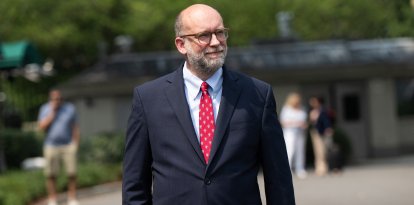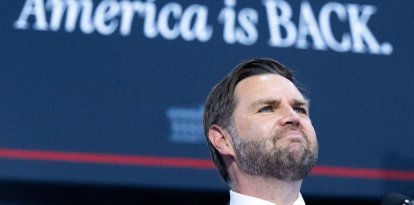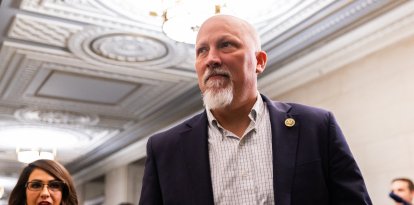Trump meets with congressional Republicans skeptical of budget plan
House Republican lawmakers are cautious about the Senate-passed, administration-supported spending plan, fearing it may fall short in reducing both spending and the national debt.

The White House
"He’s just not going to change my mind." Those were the words of Republican Andy Harris, chairman of the Freedom Caucus, offering a discouraging start for the Trump administration. On Tuesday, the president hosted several GOP congressmen in an effort to persuade them to support a budget plan—but Harris didn't even attend.
"There’s nothing that I can hear at the White House that I don’t understand about the situation," the Maryland representative said in a statement picked up by Politico. He also noted that there were "more than a dozen" skeptical colleagues, adding that even if the president could sway some, "he’s not going to whittle it down to four or three." The GOP can afford to lose only three representatives to maintain their majority.
"That sounds uncharacteristic of Dr. Andy Harris, he's a very reasonable guy," House Speaker Mike Johnson, who is aiming to pass the bill as early as this week (before the Easter recess), stated on the sit-in. The bill passed the Senate in a vote that concluded at 2 a.m. on Saturday. Sematprs Rand Paul of Kentucky and Susan Collins of Maine broke ranks, leaving the final tally at 51 votes to 48.
"All of the elements we need to secure the Border, enact Historic Spending Cuts, and make Tax Cuts PERMANENT, and much more, are strongly covered and represented in the Bill," Trump tweeted hours before the anticipated meeting. "THE HOUSE MUST PASS THIS BUDGET RESOLUTION, AND QUICKLY — MAKE AMERICA GREAT AGAIN!"
Another Republican expressing his displeasure with the proposal was Ralph Norman, also a member of the Freedom Caucus: "The Senate version fails to fix the real issue - reversing the $36 TRILLION deficit. The cancer in this country is spending, not revenues."
The chairman of the House Budget Committee, Jodey Arrington, criticized the Senate proposal as "unserious and disappointing," arguing that the cuts it suggested amounted to "less than one day's worth of borrowing by the federal government." However, party leadership maintains that the $4 billion figure is a minimum, with details to be worked out after the budget framework is approved.
"Our nation’s debt and interest death spiral are well underway, with world war-level indebtedness and interest payments exceeding defense spending," Arrington added. He also expressed his willingness to work with Trump while emphasizing the merits of the budget proposal he himself presented.


























